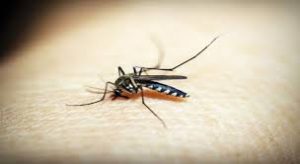MAM01 Monoclonal Antibody:

A novel monoclonal antibody named MAM01, developed by US researchers has demonstrated strong protection against malaria in an early clinical trial.
- MAM01 is a monoclonal antibody developed to prevent malaria infection.
- It’s designed to target a highly conserved region of the Plasmodium falciparum circumsporozoite protein, blocking infection before the parasite reaches the bloodstream.
- The trial found that MAM01 provided dose-dependent full protection against the malaria parasite with minimal side effects.
- Key Features of MAM01 Monoclonal Antibody
- Single injection of a long-acting antibody and provides immediate, months-long protection.
- It is particularly beneficial for young children and pregnant women in malaria-endemic regions.
Monoclonal antibodies:
- Monoclonal antibodies (mAbs) are laboratory-made proteins that mimic the body’s natural immune defenses.
- The word “monoclonal” refers to the fact that the antibodies created in the laboratory are clones. They are exact copies of one antibody.
- They are produced by cloning a single type of immune cell, known as a B cell, to generate large quantities of identical antibodies.
- This process creates highly specific antibodies that target a particular antigen, which could be a virus, bacteria, cancer cell, or other disease-related molecule.
- They can be designed to recognize and bind to a particular target molecule with great precision. This specificity reduces the risk of unintended side effects.
- They are used in a variety of medical applications, including the treatment of cancer, autoimmune diseases, and infectious disease.




